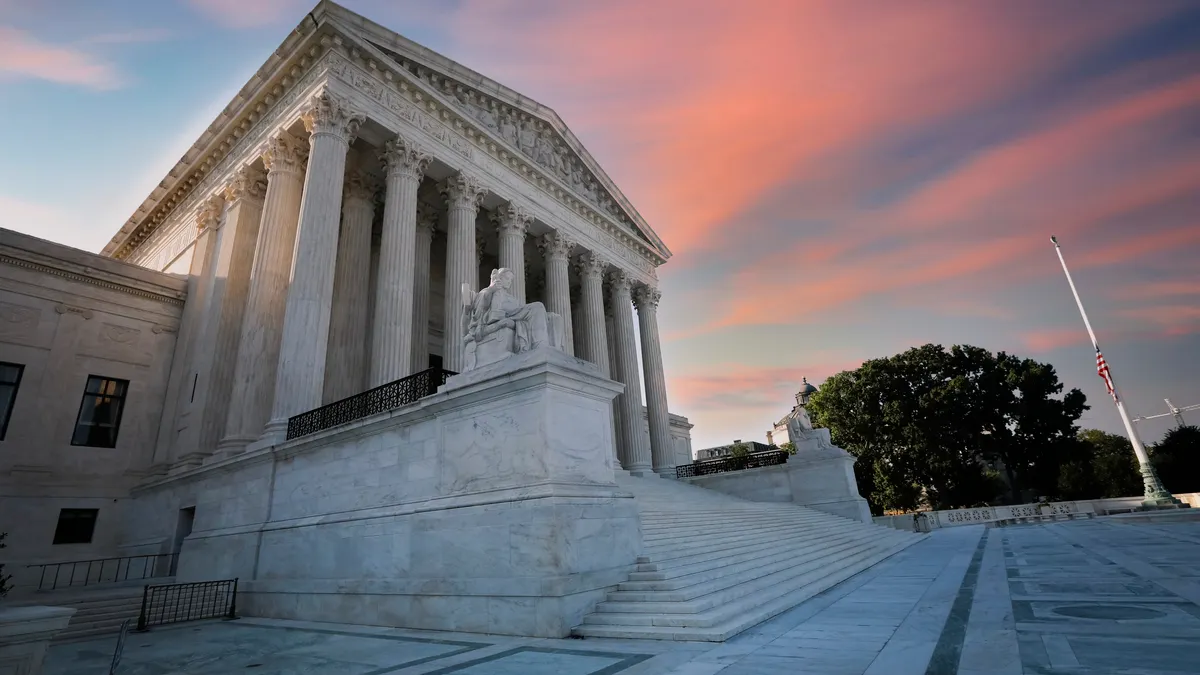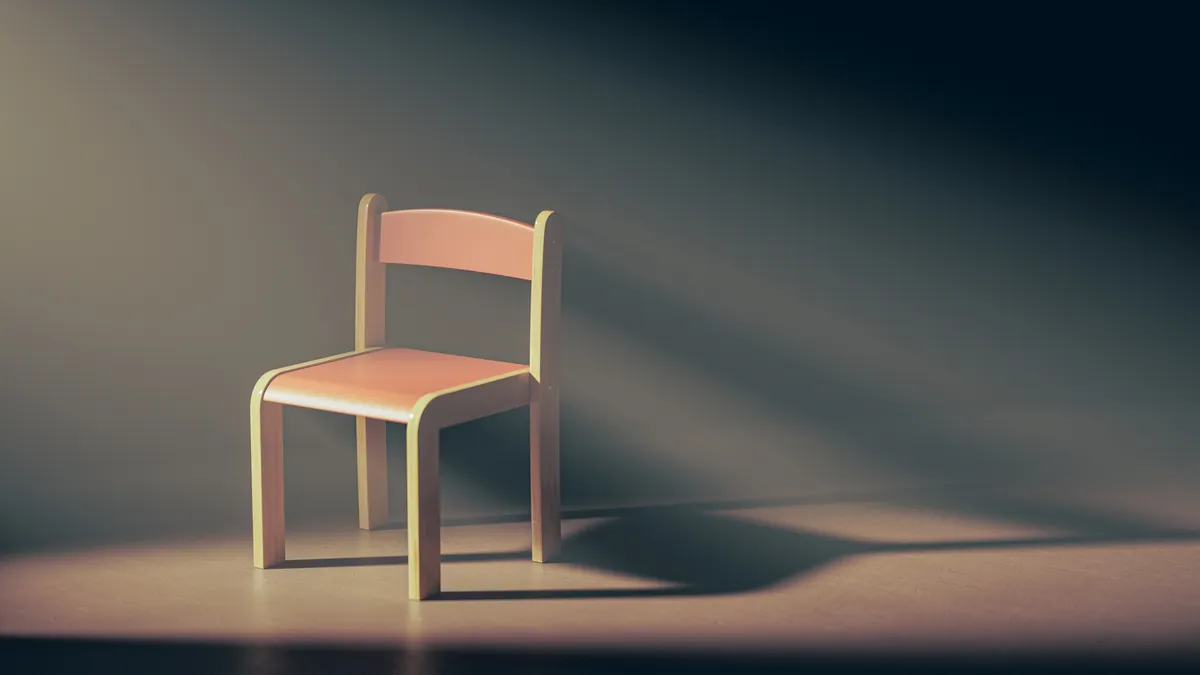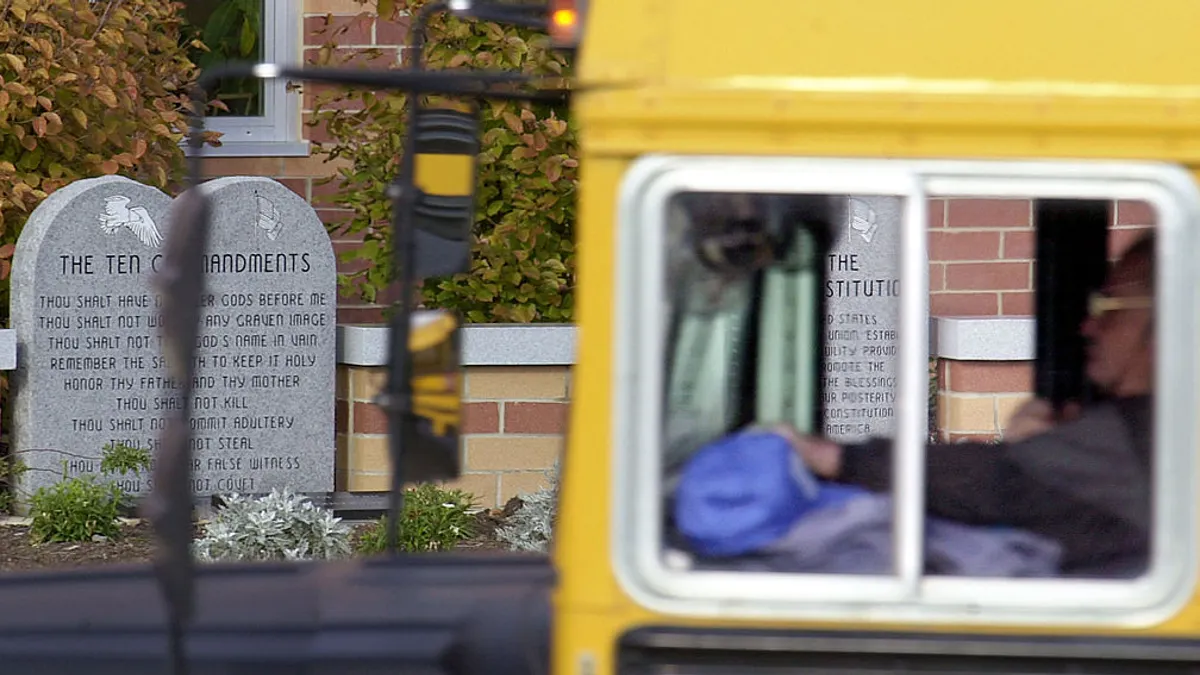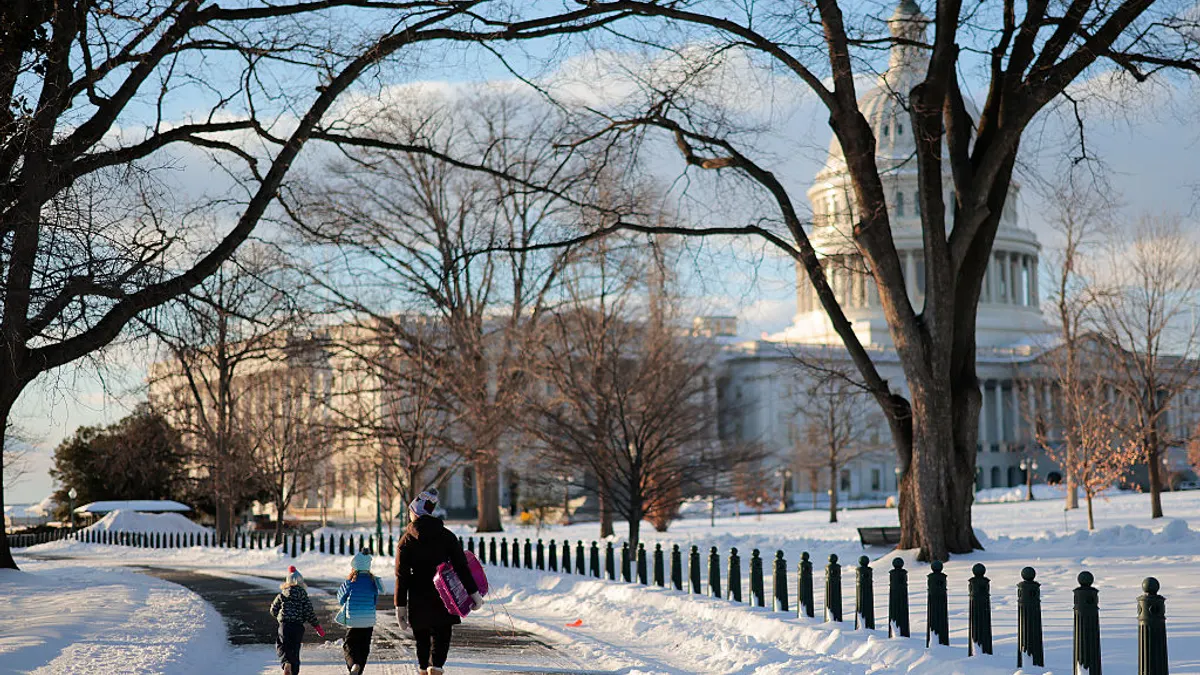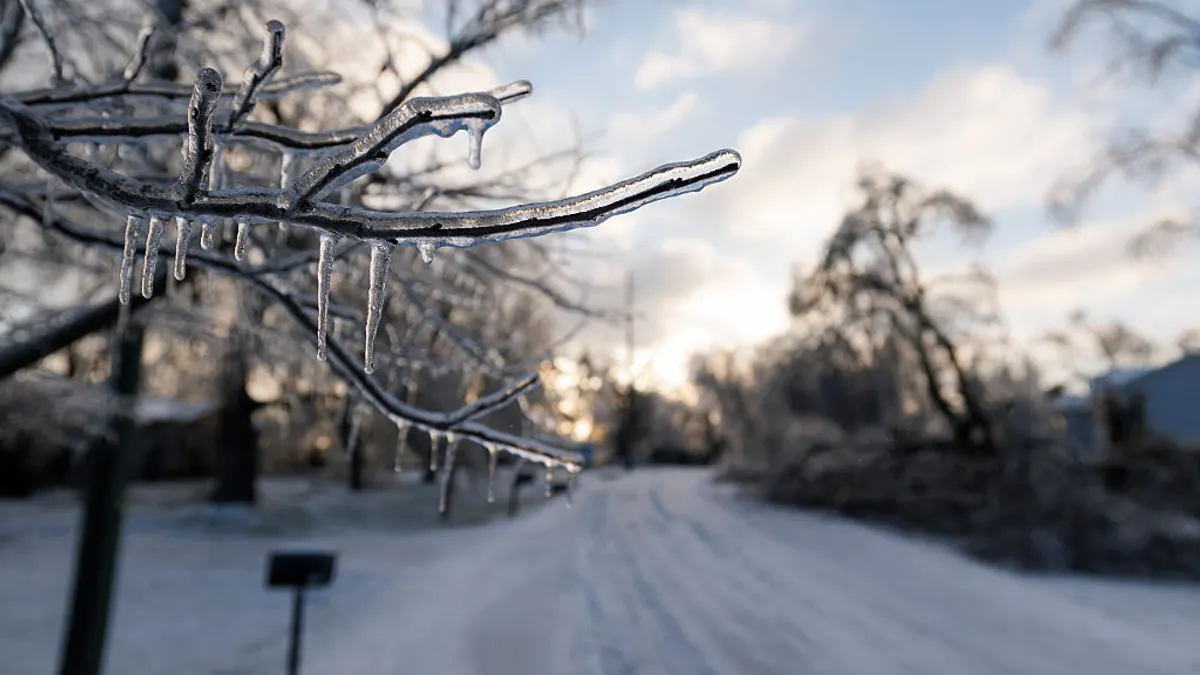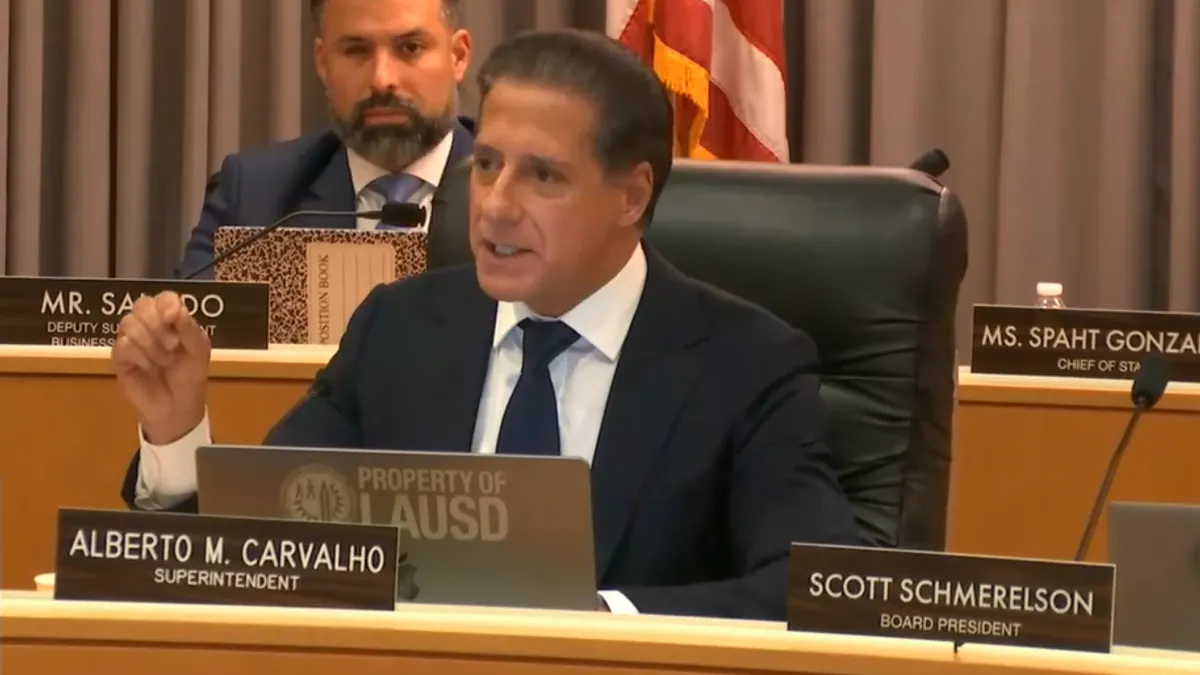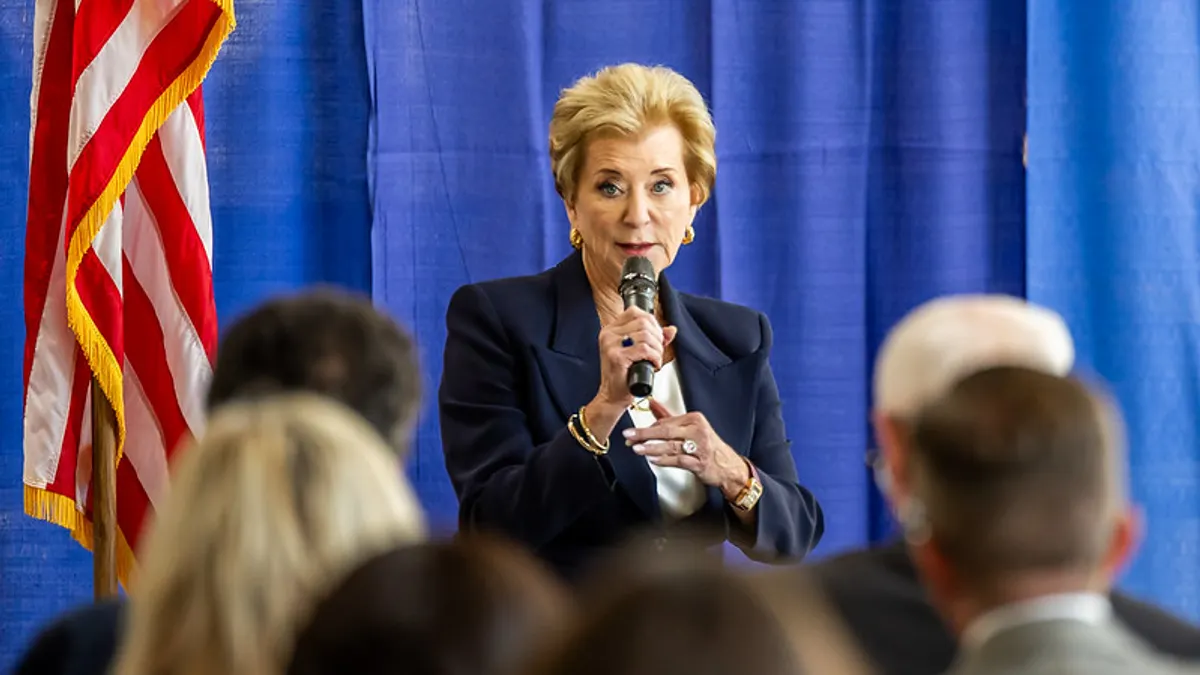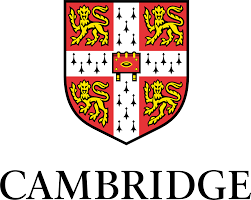After a K-12-heavy docket last term, the U.S. Supreme Court is once again gearing up for a new session beginning Oct. 6.
In recent years, the high court has drastically shifted the education landscape through landmark decisions related to issues like affirmative action and prayer in schools. It's also weighed in on important K-12 issues applying to daily school operations like parental opt-outs and student discrimination disability claims.
With a Title IX case on its docket for this term, Supreme Court justices once again have an opportunity to make a dent on student civil rights issues — and on one that has taken center stage under President Donald Trump's U.S. Department of Education.
And although the case is the only K-12 one on the high court's schedule for next term so far, more could be added.
Transgender athlete rights under Title IX
Over the summer, the Supreme Court accepted the case West Virginia v. B.P.J., which will answer the question of whether Title IX allows transgender students to play on sports teams aligning with their gender identities, or whether athletic teams must be based on sex assigned at birth. Title IX protects students from sex-based discrimination in education programs.
The case will also determine how the 14th Amendment's Equal Protection Clause, which requires that all citizens have equal protection under the law, applies to transgender students in sports.
The B.P.J. case was accepted parallel to another one applying to higher education, Little v. Hecox, which arises out of Idaho.
The Title IX question has divided the education community in a controversy that has spanned presidential administrations, with Democratic leaders overwhelmingly pushing for Title IX protections to extend to transgender students based on their gender identities, and Republican leaders including Trump saying inclusion of transgender students on athletic sports teams violates cisgender girls' and women's rights.
Since 2020, 27 states have banned transgender youth from playing on school sports teams aligning with their gender identities, according to the American Civil Liberties Union.
In an escalation of the divide, the Trump administration has in recent months cracked down on states and districts with transgender-inclusive policies, sometimes even referring such cases to the U.S. Department of Justice and threatening to withhold federal funds over them.
And while the case won't answer whether Title IX applies to bathroom policies and could be decided narrowly, a decision in the B.P.J. case could still be extrapolated by the current or future administrations and applied to bathroom issues as well, said education civil rights law experts.
"We don't know how wide-ranging or how broad that opinion is going to be, if at all," said Suzanne Eckes, professor of education law, policy and practice at University of Wisconsin-Madison. "And depending on which administration is in power in the coming years, they'll use the potential case, if they do decide on the merits, to influence other areas."
First Amendment disputes to continue
In addition to the transgender athletes' rights cases slated on the docket for the upcoming term, it's possible for the high court to take on more cases related to the First Amendment, said Robert Kim, executive director of the Education Law Center. The Education Law Center is a nonprofit that pushes for educational equity through litigation, research, and advocacy.
In recent Supreme Court terms, rights to free speech and religion under that amendment have often taken centerstage for K-12 cases. The parental opt-out case in Mahmoud v. Taylor, for example, turned on the First Amendment and 14th Amendment rights of parents who claimed that LGBTQ+ materials in curriculum violated their right to determine the religious upbringing of their children. Kennedy v. Bremerton which ruled on prayer in schools and school board members' social media use in O’Connor-Ratcliff v. Garnier and Lindke v. Freed were also First Amendment cases.
With a growing parental rights movement sweeping the nation, a growing number of book bans and other curriculum censorship efforts, and measures to incorporate Christianity in the classroom in some states, and LGBTQ+ inclusive efforts in others, it's possible that additional First Amendment cases arise.
"It's very clear that this whole issue of free exercise of religion pitted against LGBTQ+ rights — both in and out of school — continues to be a very popular set of issues pitted against each other with the Supreme Court," said Kim. "Given the recent past, even in the school context, it's almost a certainty that there's going to be more cases involving the free exercise of religion under the First Amendment and its applicability to public school settings."
Emergency docket cases
K-12 issues have also made it to the Supreme Court's emergency docket, a trend that Kim and others expect to continue. The emergency, or shadow, docket consists of cases the court has granted for immediate review.
In the past year, the Supreme Court has weighed in on at least three K-12 cases through its shadow docket — two of them related to the Trump administration's winding down of the Education Department.
In April, the court maintained a freeze on teacher training grants in a case the administration appealed to the high court after a district court required it to reinstate some of Trump’s $600 million in slashed funding.
Also in favor of the administration, the Supreme Court in July allowed the Education Department's reduction in force to take effect as the broader question of its legality works its way through the court in the case New York v. McMahon.
And in September, the Supreme Court denied South Carolina's emergency request to rule on a case after a federal appeals court required a school district to allow a transgender student to use the boys' bathroom, aligning with the student's gender identity. The emergency application was filed by the South Carolina State Board of Education and Berkeley County School District.
"The Supreme Court is being very — what I would call — 'muscular' in expanding this so-called shadow or emergency docket," said Kim. Kim's organization, ELC, is one of the organizations challenging the administration's efforts to trim the federal government through layoffs and cuts to federal programs.
"I'm worried that the Supreme Court is going to really nullify somewhat of the power of the courts to provide an effective check against the excesses of the White House."


